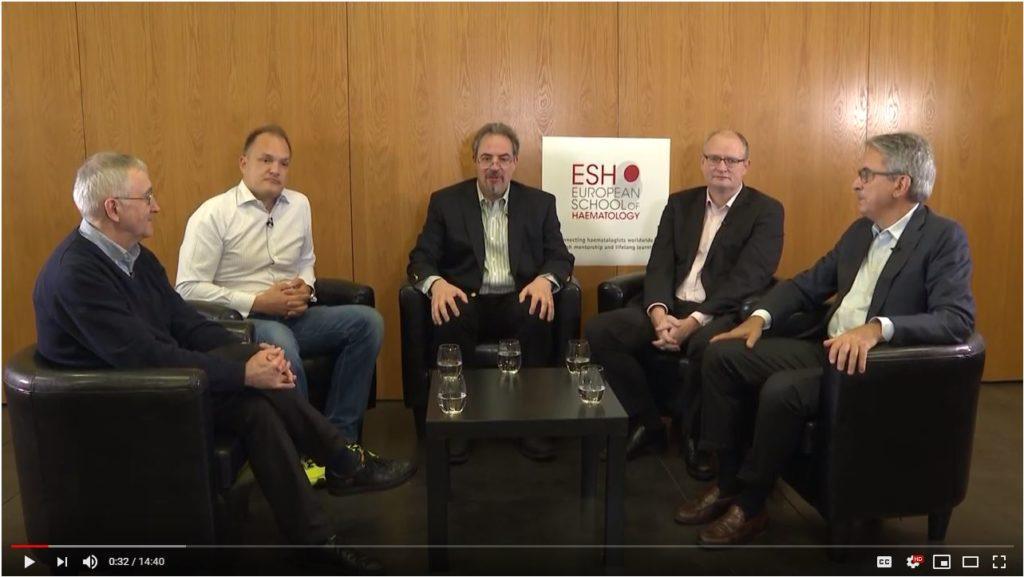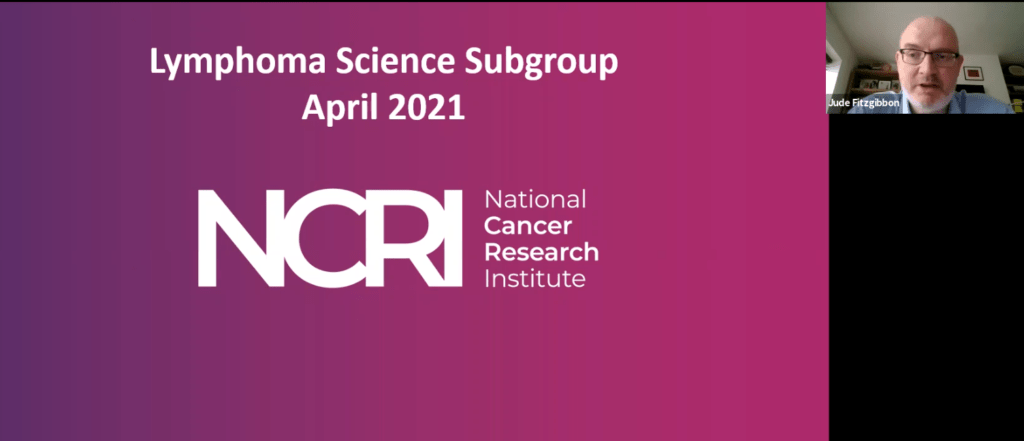Research Focus
My research group works on molecular pathology, genetics and progression of leukaemia and lymphomas, aiming to improve on current diagnostic, prognostic and treatment strategies.
Key Publications
KDM5 inhibition offers a novel therapeutic strategy for the treatment of KMT2D mutant lymphomas. Blood (2021) 138(5):370-381. PMID: 33786580
The complex genetic landscape of familial MDS and AML reveals pathogenic germline variants. Nat Commun (2020) 11(1):1044. PMID: 32098966
Follicular lymphoma. Nat Rev Dis Primers (2019) 5(1):83. Review. PMID: 31831752
Recurrent mTORC1-activating RRAGC mutations in follicular lymphoma. Nat Genet (2016) 48(2):183-8. PMID: 26691987
Major Funding
- 2021-2024- Lymph&Co programme Award PI, KDM5i Therapeutics in non-Hodgkin’s lymphoma, €1M
- 2018-2023- Cancer Research UK Accelerator Award, UK & Follicular Lymphoma lead (Jesus San Miguel (Spain) and Mario Cazzola (Italy), £1.6M to UK
- 2017-2022- Cancer Research UK Programme Award, Co-PI (Improving treatment in Poor Risk Acute Myeloid Leukemia), £1.9M
Other Activities
- Chair Danish Research Fund (Medical Sciences - Cancer) (2021-)
- Associate Editor British Journal of Haematology (2021-)
- Chair of the NCRI Lymphoma Science sub-group (2020-)
- Visiting Professor at the 1st Department of Pathology, Semmelweis University Budapest Hungary (2019-)
- Member of the Bloodwise Grant Committee (2017-)
- Member of the Associazione Italiana per la Ricerca sul Cancro (AIRC) international fellowship committee (2016 - )
- Member of the NCRI Lymphoma CSG (2018-)
Research
In lymphoma our focus is a B cell malignancy called follicular lymphoma and the (epi)genomic changes responsible for the onset and severity of the disease. Although these tumours are chemo-sensitive, the disease is incurable, with many patients experiencing several episodes of relapse before the disease becomes refractory to treatment. We have traced the genetic changes in these tumours over time and uncovered a highly complex pattern of tumour evolution, consistent with the existence of a common progenitor B cell (CPC) population from which each new episode of disease is thought to arise. Current studies are focusing on characterising this CPC population and the use of KDM5 inhibition as a means of subverting the effects of mutations in the histone methyltransferase, KMT2D, that arise in >70% of FL tumours.
In leukaemia we have a longstanding interest in the study of familial acute myeloid leukaemia (AML) and myelodysplasia. These studies are important both to the individual families and are providing new insights into the molecular evolution of AML, the patterns by which mutations arise and an explanation for the clinical heterogeneity that exists both within and between families. We also have a parallel programme in poor risk AML where outcomes have changed little over the past 40 years, and are following a multi-omic strategy to profile these AMLs and gain a deeper understanding of the disease in this group of patients.
- Watch Professor Fitzgibbon’s interview with the MDS UK Patient Support Group at the UK MDS Education Forum.
- Watch below: European School of Haematology Video - Meeting Highlights - Faculty Panel Discussion: What are the big discoveries in lymphoma pathogenesis over the last 5 years? Genetics and precision medicine
Other Activities
- Chair Danish Research Fund (Medical Sciences - Cancer) (2021-)
- Associate Editor British Journal of Haematology (2021-)
- Chair of the NCRI Lymphoma Science sub-group (2020-)
- Visiting Professor at the 1st Department of Pathology, Semmelweis University Budapest Hungary (2019-)
- Member of the Bloodwise Grant Committee (2017-)
- Member of the Associazione Italiana per la Ricerca sul Cancro (AIRC) international fellowship committee (2016 - )
- Member of the NCRI Lymphoma CSG (2018-)
- Advisory Board Lancet Haematology
- Editor Annals of Human Genetics
- External Examiner on the BMedSCi Course, Birmingham (2016-)
Watch below: Professor Jude Fitzgibbon gives an overview of the NCRI Lymphoma Science Subgroup
Major Funding
- 2021-2024- Lymph&Co programme Award PI, KDM5i Therapeutics in non-Hodgkin’s lymphoma, €1M
- 2018-2023- Cancer Research UK Accelerator Award, UK & Follicular Lymphoma lead (Jesus San Miguel (Spain) and Mario Cazzola (Italy), £1.6M to UK
- 2017-2022- Cancer Research UK Programme Award, Co-PI (Improving treatment in Poor Risk Acute Myeloid Leukemia), £1.9M
- 2015-2019- Blood Cancer UK Programme Award, Co-PI (with Dokal and Vulliamy) Genetics of Familial Leukaemia, £1.4M
- 2013-2018- Cancer Research UK, Personalised Epidgenetic Therapy for Follicular Lymphoma, £542,566.63
- 2016-2018- Blood Cancer UK, Precision medicine for aggressive lymphoma, £340,538.00
Biography
Jude Fitzgibbon, PhD, is a Professor of Personalised Cancer Medicine at the Barts Cancer Institute, Queen Mary University of London where he leads the Centre for Cancer Genomics and Computational Biology. His research is focused on the genetic and epigenetic changes responsible for the development and progression of leukaemia and lymphomas and the evaluation of therapeutic strategies to reverse these changes. His team has uncovered a highly complex pattern of lymphoma evolution, consistent with the existence of a common progenitor B cell from which each new episode of disease is thought to arise and has an internationally recognised programme on familial forms of myeloid leukaemia.
Professor Fitzgibbon received his Bachelor of Arts in Genetics from Trinity College Dublin in 1989 before going on to receive his Doctor of Philosophy at University College London in 1993. He holds numerous leadership roles including the Chair of the UK’s National Cancer Research Institute Lymphoma Science Subgroup, the Chair of the Danish Cancer Grants Committee, is a member of the Blood Cancer UK Grant Committee, member of the Associazione Italiana per la Ricerca sul Cancro (AIRC) international fellowship committee, is an Associate Editor for the British Journal of Haematology and a Male Change Champion, for the international alliance, Women in Lymphoma and received a Special Commendation in the Cancer Research-UK Flame of Hope Awards for public engagement.



